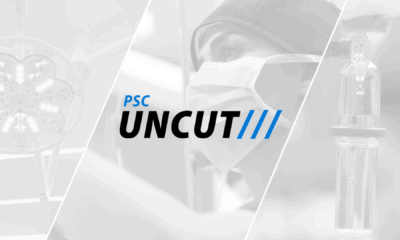Deciding on the idea of plastic surgery is easy, but the journey for many becomes difficult when it’s time to select a surgeon. The options are many, and what with the rise and growing power of social media, differentiating between who is a great surgeon and who is a great marketer can be problematic.
On the latest PSC Uncut, board certified plastic surgeons Dr. Brian Brzowski of Utah and Dr. Sean Doherty of Boston give their advice to patients on how to select a surgeon, and how to know when a potential surgeon may be less than what they’ve presented .
Step 1: Trust the Gut!
There are objective ways to find and choose a surgeon – and the good doctors will get to that – but Dr. Brzowski says there’s a great place to always start: trust your gut. “I will always tell patients to trust their gut. That connection, or lack thereof, that you have with a surgeon and staff is really one of the nuance subtleties of trying to make sure you’re in a good, safe place.”
As human beings, certainly we might argue that the ability to sense inherent trust in one another is what got us to where we are today. There’s something to intuitive trust, and likewise intuitive distrust. If a patient is interviewing a potential surgeon and feels uneasy, or that something “is off”, then that’s probably a red flag to look for someone else.
“We all love our surgeon if everything goes great, right?” continues Brzowski. “But if something were to go wrong, is this a facility where you’re going to be taken care of? That lack of connection with the staff and the plastic surgeon would certainly be one of those red flags.”
Step 2: Asking the Right Questions
When intuition is saying move forward, it’s time to ask the right questions. There is a question that’s most important that should always be asked first – or, rather, answered by the patient themselves by doing a search. That question is whether or not the surgeon you’re interested in is board certified.
“Our patients are pretty savvy and I’m impressed by that,” says Dr. Doherty. “But then I’m also surprised how they’re not savvy, because they’re not asking the right questions. You want to know that your surgeon is a board certified plastic surgeon; you need to ask that. The term cosmetic surgeon has a very generic component to it, and I don’t think patients know that. It’s up to us as board certified plastic surgeons to instruct them and make sure these patients are asking the right questions.”
Why board certification? The designation is the ultimate accreditation for a surgeon. The boards signify that the surgeon in question has not only completed the training necessary, but shows technical ability and knowledge at the highest of levels, and also contributes through education to the growing pool of research and technique. To pass the boards is to be elite, and patients interested in plastic surgery should never entertain anyone but the best to perform their surgery.
“It’s so simple for patients to first and foremost start with trying to determine whether it’s a board certified physician,” adds Brzowski. “By going to the American Board of Plastic Surgery’s website, you can easily do a search for your location, or the name of the surgeon, to find out if they’re a board certified plastic surgeon. I think that’s a huge step. And then they can start going onto these other sites where they might look for more information, reviews and things like that.
Step 3: Surgical Facilities
The other extremely important component to verify credentials is where the surgeon operates. If the surgeon chosen is board certified, it’s almost 100% likely that they perform surgery in a hospital (where they have privileges to perform surgery) or their own surgical facility that is accredited. While extremely likely, it’s always crucial to verify this information. Even though plastic surgery procedures may seem like less of a deal than open heart surgery or brain surgery, surgery is surgery no matter what it is. There are risks anytime someone enters the OR as a patient and has general anesthesia. To combat the chance that something goes wrong, it’s essential to know the surgical facility is ready to handle any situation.
“I think where that physician operates [is important], an appropriate medical setting,” says Doherty. “We’ve all heard rumors of waiting rooms in Dunkin’ Donuts – inappropriate. Plastic surgeons see patients in an office, they operate in an accredited surgical facility or hospital. Those are questions that everyone should ask.”
When board certification and surgical facility accreditation are assured, then patients can dive further into their surgeon of choice with smaller questions. At the end of the day, Dr. Brzowski makes a strong point about the gut. While it’s absolutely critical to verify board certification and accreditation, ultimately patients need to go with who they trust. If you believe and trust your surgeon to understand your desires and construct a pathway to achieve them, then perhaps there is no better sign of assurance.








Facebook
Twitter
Instagram
YouTube
RSS